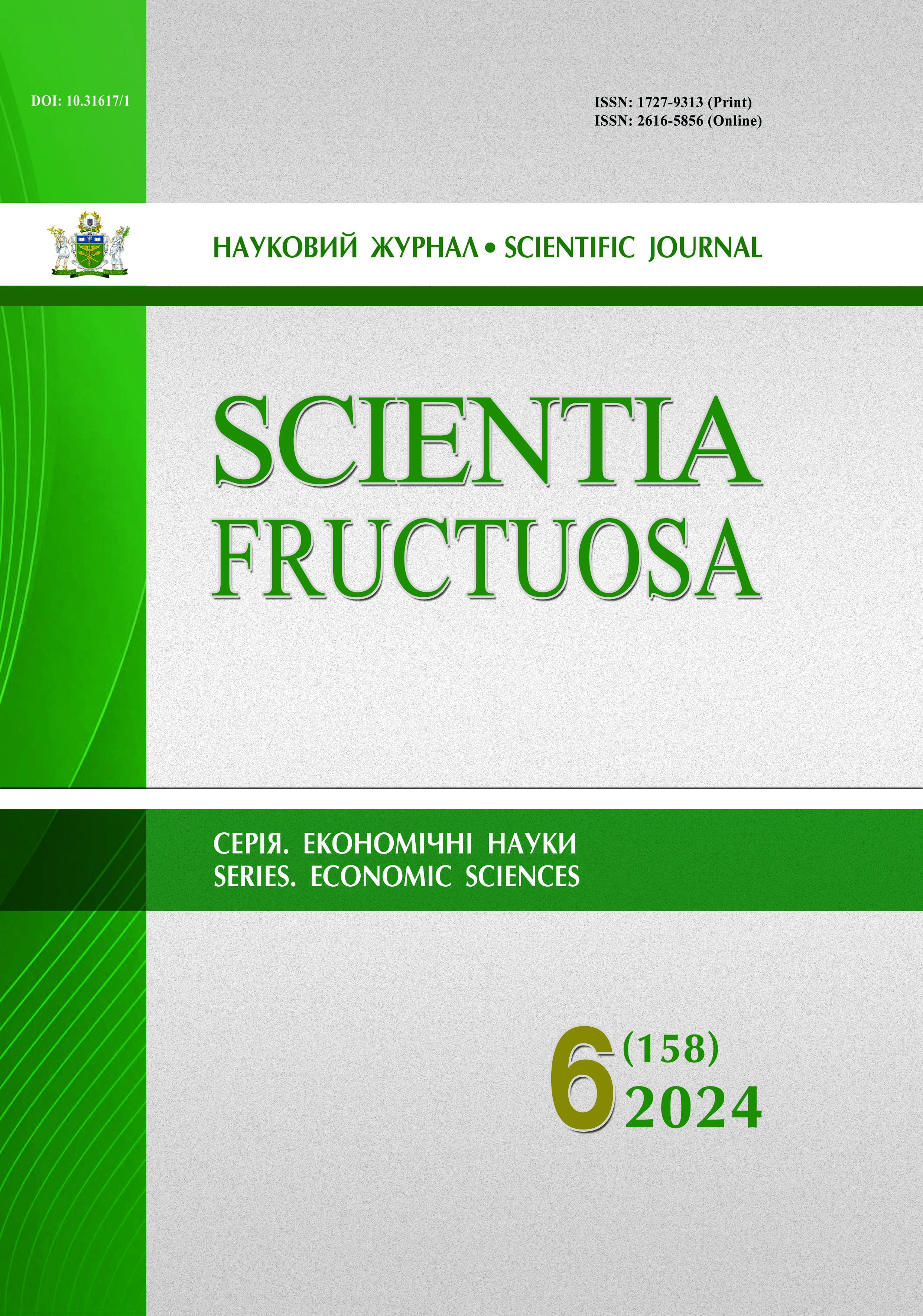Грінвошинг в екобрендингу FMCG-підприємств
DOI:
https://doi.org/10.31617/1.2024(158)03Ключові слова:
екобрендинг, FMCG-підприємства, екологічні ініціативи, екологічний маркетинг, грінвошинг, стратегія, екологічна відповідальністьАнотація
Екобрендинг є важливим інструментом сучасного маркетингу, що сприяє формуванню довіри споживачів і підсилює екологічний імідж брендів. Для FMCG-підприємств це означає інтеграцію екологічних цінностей у стратегії позиціювання бренду, які реалізуються через використання слоганів, дизайну упаковки та інших елементів, що символізують звʼязок з природою. Однак разом з розвитком екобрендингу дедалі частіше спостерігається явище грінвошингу – маркетингового прийому, що створює хибне уявлення про екологічність бренду. Розглянуто сутність грінвошингу та доведено його негативний вплив на споживачів, ринок і бренди, зокрема через зниження довіри, скорочення кількості лояльних клієнтів та посилення регулювання. Проведено класифікацію видів грінвошингу за способом комунікації, сферою впливу та рівнем екологічної відповідальності. Гіпотеза дослідження полягає в тому, що прозора комунікація, підтримана сертифікацією та реальними екологічними ініціативами, здатна мінімізувати явище грінвошингу і підвищити конкурентоспроможність брендів. Методологія дослідження базується на аналізі сучасної наукової та прикладної літератури, а також на огляді успішних практик у сфері екобрендингу. Запропоновано поетапну стратегію екобрендингу для FMCG-підприємств, яка передбачає уникнення грінвошингу, забезпечення довготривалого розвитку бренду та зміцнення довіри споживачів. Наголошено на важливості застосування таких інструментів, як оцінка життєвого циклу продукту, прозорі звіти та незалежна сертифікація, що дозволяють гарантувати автентичність екологічного іміджу бренду
Посилання
Bowen, F. (2014). After greenwashing: Symbolic corporate environmentalism and society. Cambridge University Press. https://doi.org/10.1017/CBO9781139541213
Delmas, M. A., & Burbano, V. C. (2011). The drivers of greenwashing. California Management Review, 54(1), 64-87. https://doi.org/10.1525/cmr.2011.54.1.64
ESMA. (2023). Progress Report on Greenwashing. https://www.esma.europa.eu/document/progress-report-greenwashing
Fair Trade USA. (n. d.). Fair Trade Certification. https://www.fairtradecertified.org
Global Organic Textile Standard (GOTS). (2021). GOTS Version 6.0: Global Organic Textile Standard. https://global-standard.org
ISO. (2015). International Organization for Standardizationю ISO 14001: Environmental management systems - Requirements with guidance for use. https://www.iso.org/standard/60857.html
Kortenko, O. (2020, April 14). Greenwashing: How companies manipulate ecological marketing. Bazilik Media. https://bazilik.media/hrinvoshynh-iak-kompanii- manipuliuiut-ekolohichnym-marketynhom/
Laufer, W. S. (2003). Social accountability and corporate greenwashing. Journal of Business Ethics, 43(3), 253-261. https://doi.org/10.1023/A:1022962719299
Minkova, O. G., Sakalo, V. M., & Horb, O. O. (2016). Labeling and certification of organic products. Current Issues in Economics, (2), 126-135.
NielsenIQ Insights. (2019). A natural rise in sustainability around the world. https://nielseniq.com/global/en/insights/analysis/2019/a-natural-rise-in-sustainability-around-the-world/
Odynets, K. O., & Konak, Ye. I. (2022). Greenwashing as a form of environmental marketing of modern companies. Modern Information Technologies and Telecommunications Networks: Abstracts of the 57th Research Conference of Young Researchers (Bachelor Programs), 18-20.
Ottman, J. A. (2011). The new rules of green marketing: Strategies, tools, and inspiration for sustainable branding. Berrett-Koehler Publishers.
PEFC. (n. d.). Programme for the Endorsement of Forest Certification. Technical documentation. https://pefc.org/resources/technical-documentation?filter_category%5B0%5D=10000081&filter_category%5B1%5D=10000082
Rainforest Alliance. (n.d.). Our certification programs. https://www.rainforest-alliance.org
RepRisk. (2023, October 17). RepRisk data shows decrease in greenwashing for the first time in six years, but severity of incidents is on the rise. PR Newswire. https://www.prnewswire.com/news-releases/reprisk-data-shows-decrease-in-greenwashing-for-first-time-in-six-years-but-severity-of-incidents-is-on-the-rise-302270740.html
RepRisk. (2024, March 21). Increase in greenwashing with one in three greenwashing public companies also linked to social washing. RepRisk. https://www.reprisk.com/research-insights/news-and-media-coverage/reprisk-data-shows-increase-in-greenwashing-with-one-in-three-greenwashing-public-companies-also-linked-to-social-washing
Siano, A., Vollero, A., Conte, F., & Amabile, S. (2017). More than words: Expanding the taxonomy of greenwashing after the Volkswagen scandal. Journal of Business Research, (71), 27-37. https://doi.org/10.1016/j.jbusres.2016.11.002
Szabo, S., & Webster, J. (2021). Perceived greenwashing: The effects of green marketing on environmental and product perceptions. Journal of Business Ethics, 171(4), 719-739. https://doi.org/10.1007/s10551-020-04461-0
TerraChoice Group. (2010). The sins of greenwashing: Home and family edition. TerraChoice Environmental Marketing Inc. https://sinsofgreenwashing.com
Vollero, A. (2022). Greenwashing: Foundations and emerging research on corporate sustainability and deceptive communication. Emerald Publishing Limited. https://doi.org/10.1108/9781801179669
Zishen, Lin. (2022). Reasons and analysis of Coca-Cola's greenwashing. BCP Business & Management, (33), 23-28. https://doi.org/10.54691/bcpbm.v33i.2714
##submission.downloads##
Опубліковано
Як цитувати
Номер
Розділ
Ліцензія

Ця робота ліцензується відповідно до Creative Commons Attribution 4.0 International License.
Ліцензія Creative Commons Зазначення Авторства 4.0 Міжнародна (CC BY 4.0)







